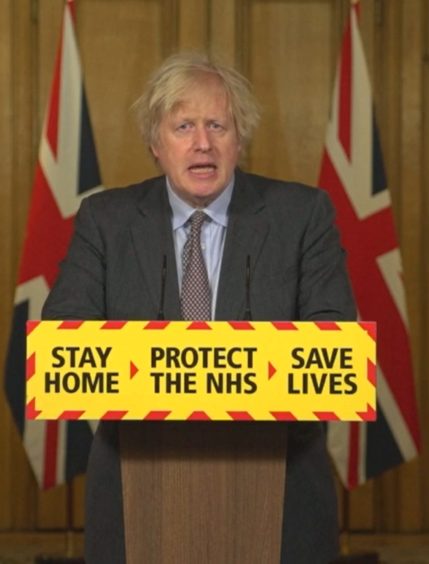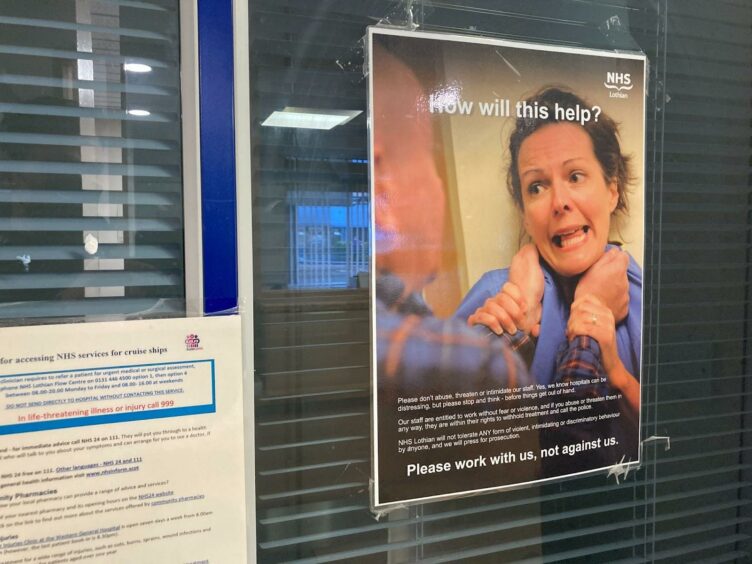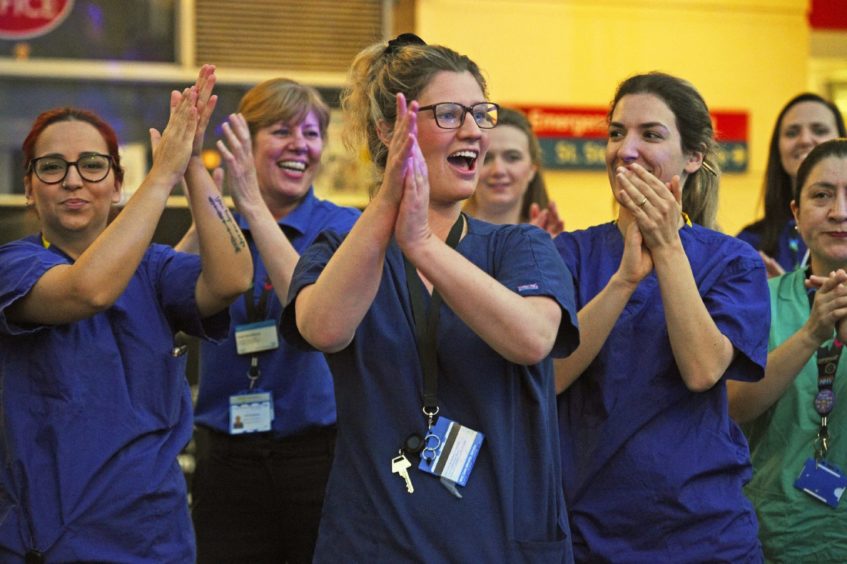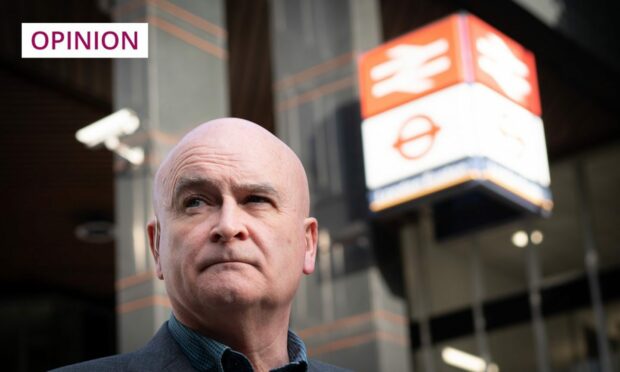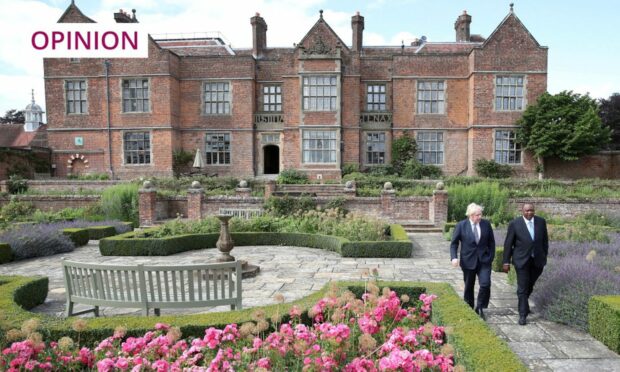I couldnae believe it. I was sat across fae a GP in the pub, and he was saying that folk dinnae like the NHS anymair.
“Folk are sick of us, I think,” he said.
“I don’t get it so bad, being male, but female nurses, female GPs are getting massive amount of abuse.
“It turns physical, too. There’s a lot of racism. It feels like there’s real anger there.”
I’d met this GP socially and we were just blethering in general, when I’d mentioned the fact that it’s massively difficult to get to see my doctor these days.
Even securing a brief phone appointment at my local medical centre has proved impossible on a few occasions.
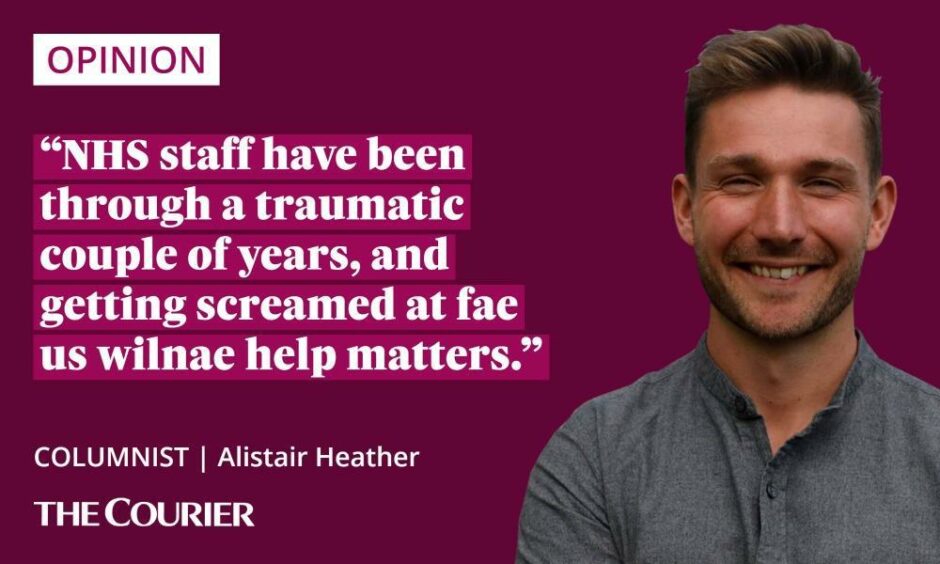
I had athlete’s foot and I wanted it seen to. Not an emergency. Just part of routine medical care.
It wasnae this GP I’d just met’s problem.
And short of unwrapping ma foostie toes fae their socks and shoes and plonking them on the table before us, I couldnae really make it his problem, either.
But he looked like he took the criticism personally, and wearily.
Evidence is there – in polls and in the waiting room
The anger, he reckons, comes fae the use of staff in the NHS as the front men and women for lockdowns.
“Lockdowns were for us,” he said.
“Stay Home, Protect the NHS was the stated purpose of the whole thing. Folk made huge sacrifices. Now they’re out of lockdown and they want their surgeries, they want their GPs.
“It’s like they protected us and now they think ‘get bloody on with it’.”
This isn’t just one GP’s perception.
Satisfaction in the NHS is the lowest its been in a long, long time. And that satisfaction is plummeting.
I saw what it was like for staff myself this week when I hurt my foostie foot at footie.
‘Just another day in paradise’ – assaults and threats on the NHS frontline
I nipped in to the minor injuries unit and as I waited my turn I lugged in to two nurses being briefed about a slightly dangerous looking patient.
“Nah dinnae chuck him oot,” Nurse one advised.
“I tried that last time and he assaulted us. Tried tae ran at a child wi his wheelchair too. I dinnae want you getting the same.”
The nurse on the receiving end of the info was dead young, early twenties maybe, and looked rattled.
I was literally a metre away fae their muttered conversation so I piped up: “Yous alright?”.
(As if exactly what these medical experts needed to deal with a problematic patient was a hurpling columnist.)
“Aye fine, dinnae worry. Just another day in paradise,” nurse one smiled.
They made their plans and went off to get someone broader-backed to deal with the patient.
And I sat there, looking at several posters asking me, quite politely, not to go mental and batter the staff.
A complicated system – and an unfolding crisis
I’m glad we’re moving away from the idea of the NHS being rarified, above criticism, staffed by “angels”.
Our healthcare system is massively complex.
It’s hard enough to understand or manage as it is, without throwing a distracting haze of halos above it all.
It’s not some Avengers style superhero posse funded by plucky fundraisers.
And it does us all good to see it as a funded system, with flaws and successes and regional and temporal variations.
It’s a wing of our state, which we’ve built and which we continue to run and fund.
But the reality is we have a moment of crisis.
Queues will lengthen and pressure will mount
The Scottish NHS will take years to clear the backlog of surgeries and treatments built up during Covid.
People will die. People who would, perhaps, have otherwise been treated in plenty of time.
Scottish Labour leader Anas Sarwar says one in eight Scots are on NHS waiting lists against a picture of staff shortages
FM Nicola Sturgeon says seeing waiting times reduce is a focus of coming out of Covid and Scotland has record health staffing#FMQs: https://t.co/gN4ood5czw pic.twitter.com/hSn5hQgLOK
— BBC Scotland News (@BBCScotlandNews) March 3, 2022
Surgeries might be more complex now, due to the long waits, meaning recoveries will be longer too.
The suffering implicit in these wait times is monumental.
People watching family members go through pain, uncertainty and long periods of reduced mobility as they wait and wait and wait will, of course, get angry.
And the reality is that those on the receiving end of that anger will be GPs, nurses and hospital porters.
Then there’s folk like me, with our foostie feet and other minor ailments that cannae get seen at the GP.
We’ll grumble about the fact we’re paying more than ever, but simply not getting the services we are accustomed too.
The murmurings for further privatisation could rise.
We need patience, absolutely. NHS staff have been through a traumatic couple of years, and getting screamed at fae us wilnae help matters.
But we also need decisive political action, effective leadership within the healthcare system and the allocation of funds where needed.
NHS needs us to press for political action
Universal healthcare that is free at the point of need is a glorious social achievement, and one that needs to be constantly re-won generation after generation.
We can take action through the ballot though.
We’ll have our local elections soon.
And local councils can massively help ease the pressure on NHS services, by supporting healthier lifestyles, preventative measures and care in the community.
Make sure your vote goes to people who will push for preventative, positive health care and demand the central funding that will make this possible.

